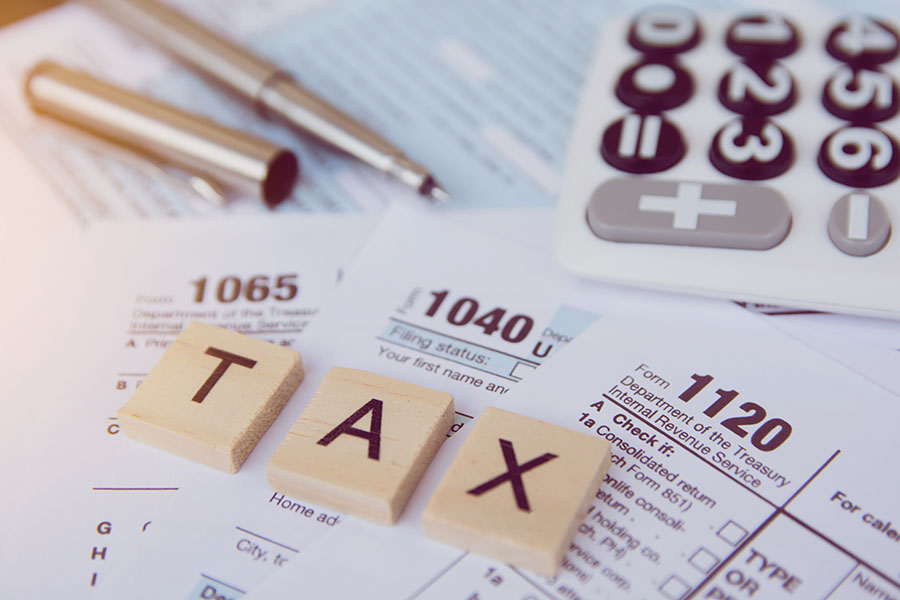Examples of nondeductible business expenses include business gifts over $25, business entertainment, and half of the cost of business meals.
What Are Nondeductible Business Expenses?
From personal experience, I can attest that the IRS is fairly vigilant about disallowing expenses that do not meet the criteria for deduction. Deductible business expenses must be both ordinary and necessary. This means that deductible expenses should be customary for the industry in which the business operates, and the expenses should be useful. Expenses that are not ordinary and necessary are nondeductible.
In addition to this broad definition, the IRS provides guidance on specific business expenses that cannot be deducted. In this article, I’ll provide a list of expenses that either the IRS has identified as nondeductible or the tax courts have disallowed.
Business Entertainment
The 2017 Tax Cuts and Jobs Act (TCJA) eliminated the deduction for entertainment expenses. This means you can’t deduct the cost of entertaining clients at sporting events, concerts, or private clubs. Even when business is being discussed with clients or employees, expenses related to entertainment still aren’t deductible.
However, when business meals are consumed at entertainment events, the portion of the event expenses related to meals are deductible. To be eligible for the deduction, you must have an itemized receipt that states the cost of the meals separately from the entertainment event costs.
Let’s say you invite your favorite client to a baseball game, where you treat them to hot dogs and drinks. Since the baseball game is considered entertainment, the cost of the tickets isn’t deductible. Assuming you have a receipt that lists the hot dogs and drinks separately from the baseball tickets, you may deduct 50% of the expenses associated with the food purchased.
50% of Business Meals
In most cases, you can only deduct 50% of business food and beverage costs. Per the IRS, the meals cannot be considered “lavish or extravagant,” and the business owner or employee must be present. The following business meals cannot be deducted at all:
- Meals not separately stated from the cost of entertainment
- Customer meals where the taxpayer or employee isn’t present
- Employee meals while traveling for a day where no overnight stay is required
Taxes
Taxes that cannot be deducted as business expenses include:
- Federal income taxes
- 50% of self-employment taxes (50% are deductible as an adjustment to income for the sole proprietor or partner)
- Estate, inheritance, legacy, succession, and gift taxes
Employers are allowed to deduct employment taxes that they must pay on the wages of their employees, such as Social Security and unemployment tax.
Penalties & Fines
You cannot deduct an underpayment penalty, late payment penalty, or late filing penalty. Nondeductible penalties and fines are not limited to tax-related items.
Other nondeductible penalties and fines include:
- Speeding tickets (even when incurred while conducting business activity)
- Building code violation fees
- Certain court-ordered settlements and payments
The IRS states that you can never deduct fines and penalties paid for violation of the law. However, legal precedent has challenged the credibility of that statement. When business owners err, the legal responsibility that results may be labeled as a fine, penalty, or damages. Damages can be further categorized as punitive or compensatory.
Certain damages are deductible, even when paid to a government agency. Furthermore, the fact that a payment to a government agency is called a fine on paper does not automatically make it nondeductible. The IRS issued final regulations in 2021 indicating the criteria for deductible compensatory payments.
Political Contributions
Political gifts, contributions, and political campaign support for public office candidates are nondeductible. Expenses incurred in the course of political support are also nondeductible. No deduction is permitted for indirect contributions such as advertising, fundraising, or event tickets. If the proceeds from a program or event are for a political party or related candidate’s use, the associated expenses are nondeductible.
Illegal Payments
Payments made to officials or employees of any government official are not deductible if the payments constitute an illegal bribe or kickback under US law. Even if the payment is customary in the country of payment, it may violate the Foreign Corrupt Practices Act, making the payment nondeductible.
The important thing to note is that the kickback is only nondeductible if the payment is illegal under US law. For example, if you hire a hitman to murder the board chairman of your biggest competitor, that payment is not a deductible ordinary or necessary business expense because it’s illegal (at the time of this writing) to pay someone to commit murder. While murder is also a crime, the actual payment violates the law, which is what makes it nondeductible.
Oddly, legal payments made for illegal activity are deductible as long as they are for ordinary and necessary expenses and are not expressly forbidden by legal statute. Remember, the payment itself must violate the law to be nondeductible, irrespective of whether the product or service received is illegal.
The IRS expects a tax return to be filed for each year of business, reconciling all ordinary and necessary business activity, even if the deducted expenses are illegal. An example of this peculiarity in practice would be deducted security expenses for an illegal gambling hall.
Many operators of illegal businesses choose not to file returns to avoid alerting the IRS of their illegal activities. So the IRS is usually unaware of the nondeductible payments (to disallow them) until after a suspect from the criminal enterprise is arrested and the IRS learns of the untaxed income.
Business Expenses of Drug Trafficking
Unlike most illegal activities, the ordinary and necessary expenses of drug trafficking aren’t deductible. You can’t deduct expenses related to smuggling illegal substances into the country.
When a drug trafficker is arrested, the IRS can include all estimated income they earned in taxable income without allowing any deductions against that income except for the cost of the actual drugs. At the federal level, marijuana is still illegal, but multi-state legalization has complicated the commercial landscape and how marijuana dispensaries are taxed.
Personal Expenses With a Business Use
The IRS permits business deductions for expenses that are ordinary and necessary, but some expenses have such abundant personal benefits that the IRS does not allow them as business deductions. Examples of these expenses include:
- Expenses related to hygiene, grooming, and personal appearance
- Cost of personal transactions with customers of your business
- Kennel boarding for pets while on a business trip
- Passport renewal costs spent in conjunction with a business trip
- Business expenses where the principal motive is personal (e.g., payment to prevent default on a business loan, collateralized by a personal asset when the main purpose of the payment is to maintain ownership of the personal asset)
While some of the previous expenses might seem legitimately deductible, they are disallowed because of the large amount of personal benefit available. For example, a renewed passport has a personal benefit that far outweighs the single use of the business trip. Even if multiple business trips are taken with the renewed passport, the taxpayer has a substantial opportunity to use the passport for personal purposes.
Legal Fees for Divorce & Separation
Legal fees related to divorce are generally personal expenses and not deductible for business purposes. However, since there are some instances where they may be deductible, it’s important to distinguish between the kinds of legal divorce fees that are deductible and the ones that are not.
Legal divorce fees for the situations below are not deductible business expenses:
- A spouse’s business valuation in anticipation of a divorce where the other spouse’s only interest in the company is through marriage
- Fees paid to shield business property from a spouse in a divorce settlement
- Loans issued to a spouse from a third party for legal fees in exchange for a percentage of a divorce settlement, wherein the third party is not in the business of loaning money.
There are some situations where legal fees for divorce and separation expenses are deductible as trade or business expenses when the legal fees are directly related to the generation or preservation of income from a taxpayer’s business. For example, if one spouse attempts to lock the other spouse out of operations and plunder the business, the spouse who has been locked out may be able to deduct legal expenses related to regaining control of the business and making sure the entity remains operational.
A primary factor in distinguishing deductible divorce-related legal fees from nondeductible ones is the ultimate motive of the legal action. If the legal action is to preserve business operations in a profit-seeking activity, the expense may be deductible. General legal and divorce fees related to separating business or other assets are generally not deductible business expenses.
Extravagant Transportation With No Business Purpose
Big-budget modes of transportation such as boats, and airplanes are not deductible if they do not have a valid and direct business purpose. The criteria for establishing a business purpose are not specifically defined. The most important thing to have documented is evidence of how the big-budget asset relates to the operation of your business.
There is legal precedent for the disallowance of the following big-budget transportation modes that did not show sufficient business purpose:
- Boats, airplanes, or other modes of transportation used primarily for personal purposes
- A corporate stockholder’s race car expenses with a business purpose represented as a recruiting tool for employees
- An airplane used by a real estate investor for a business with no gross receipts, no purchased properties, and no evidentiary need to use flight as a method of visiting properties
What Is an Ordinary & Necessary Business Expense?
Unless an expense falls into one of the nondeductible expenses listed above, it can be deducted if it’s ordinary and necessary. Ordinary is usually interpreted by the courts to mean an expense that’s common within a specific trade or business, while necessary means helpful and appropriate. If you run a delivery business, ordinary and necessary expenses would be the fuel, maintenance, and tolls associated with your vehicles.
Other examples of ordinary and necessary business expenses that are deductible include:
- Administrative expenses like licenses, insurance, and bookkeeping
- Office supplies to support your business
- Attorney and accountant fees
- Employee compensation
- Employer-sponsored retirement plans, such as a 401(k)
- Rent for office space
- Bank charges
- Commissions and sales costs
- Contract labor costs
- Dues and subscriptions
- Postage and delivery fees
- Equipment rentals
- Software
- Utilities
- Advertising and promotion
- Internet subscriptions, domain names, and hosting
Bottom Line
Business expenses that aren’t ordinary and necessary for your business cannot be deducted. In addition, in the broad ordinary and necessary test, several expense types are explicitly made nondeductible in the tax code, including entertainment, taxes, penalties and fines, political contributions, and capital expenditures.


